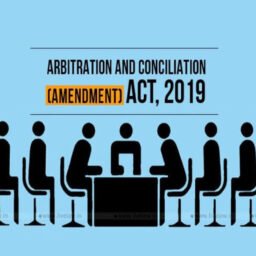INTRODUCTION
Oil and Natural Gas (O&NG) is the fulcrum on which the economy of a country rests. It plays a notable role in influencing the decision of important sections of the economy. O&NG has been one of the most efficient means to turn the table in the international arena. The flourishing O&NG sector results in the proliferation of numerous industries like manufacturing, coal, steel, transport etc. Such industries are largely dependent on oil and natural gas. It is pertinent to note that the sector will thrive only when the legal regulations are robust, promotes ease of doing business, hassle-free and transparent.
O&NG SECTOR IN INDIA
The industry in India is growing robustly and players are undertaking major investments. Our government has allowed 100% foreign direct investment. India has also entered into various MoUs through PSUs with big players in the industry. To regulate all these various laws and rules have been enacted. The major law for the industry is- Petroleum and Natural Gas Regulatory Board Act 2006, Oil Field Regulations and Development Act 1948 and Petroleum and Natural Gas Rules 1959.
Article 246 of the Constitution demarcates the power between Parliament and State Legislature. Under Clause 1, Parliament has the exclusive power to make laws on all the matters itemized in the Union List. The regulation of oil fields, mineral oil resources, petroleum and petroleum products is covered under Entry 53 of List I. Moreover, the duty of excise on these products is also covered under Entry 84 of List I. Further, clarifying on this aspect, Supreme Court 5-judge bench in Association of Natural Gas v. Union of India[1] held that natural gas is within the domain of Parliament and State has no power to enact any law. Gujarat High Court, too in Satish Maganlal Vohra v. Union of India[2] has termed natural gas as national assets.
Ministry of Petroleum and Natural Gas is the nodal ministry to regulate and provide a legal framework for petroleum and natural gas. Subordinate to the Ministry lies various divisions, PSUs and subsidiaries. Further, there are two different Boards- Petroleum and Natural Gas Regulatory Board (PNGRB) established under Petroleum and Natural Gas Regulatory Act 2006 to mandate refining, storage, processing, distribution, marketing and sale of petroleum and natural gas products. Oil Industry Development Board established under Oil Industry Development Act 1974 to levy excise duty on crude oil and natural gas. There is an Act – Oilfields Act to regulate licensing and leasing of O&NG blocks. Petroleum Act 1934 is the oldest Act to regulate the transport and storage of petroleum products. To sum up, Parliament has enacted various laws regulating the three sectors of the industry.
LEGISLATIVE ANALYSIS OF DISPUTE RESOLUTION
The disputes is an inalienable part of a society and business. The foremost important part of the dispute is the resolving mechanism applied, which varies from place to place for the specific subject matter. For any dispute arising out in the industry, PNGRB shall have the authority to decide the disputes. Reference can be drawn to Sec 12 of the Act which specifies the power of the Board. It bestows on the Board to decide “any dispute” arising among any one or more entity or among persons. The jurisdiction of the Board is wide enough to hear dispute according to Chapter V. Parliament has couched the sub-section with the word “any” which is further supplemented by the phrase “……issues related to refining, processing, storage, transportation, distribution, marketing….…….” Board’s power is controlled by the last phrase after a comma. The Board’s power to hear “any dispute” is subject to arbitration. Simplifying it, the parties are free to choose the mode of arbitration for resolving the disputes and exclude the jurisdiction of the Board. Thus, there are two ways a dispute in the industry can be resolved- one by making oneself amenable to the jurisdiction of the Board and the other by adopting arbitration. Parties have the prerogative to choose either of the modes of dispute resolution.
Sec. 24 to Sec. 29 under Chapter V specifies the Board’s power to settle disputes. Sec 24(1) is a saving clause, protecting the rights of parties to choose arbitration by agreement. Thus in normal circumstances where there is no arbitration clause in an agreement, all disputes mentioned in Sec 24(2) shall be decided by the Board. The Board shall have the power of civil court for the purpose of discharging the function. The Act provides the power to investigate the complaint while settling the disputes. There is also a provision for a civil penalty not exceeding one crore rupees for each contravention and ten lakh for subsequent contravention. It is to be noted that “every order made by the Board under this Act” shall be deemed to be a decree. The Appellate Tribunal shall have the jurisdiction to hear an appeal against the order of the Board. Overriding the provision of CPC, every order made by the Tribunal can be appealed before the Supreme Court under Sec 37(1) of the Act.
Summing up, the dispute resolution in the sector is dealt with by the Board which has the power of the civil court and the orders passed by it are decree in terms of Sec 2(2) of CPC. Further, the jurisdiction of PNGRB encompasses any dispute related to the O&NG industry subject to the arbitration clause mentioned in the agreement. Once the arbitration is the mode chosen by the parties, Arbitration and Conciliation Act is applicable to such proceedings.
HARMONIZING THE DISPUTE RESOLUTION MECHANISM
One of the main issues for the settlement of any dispute or claim is the lethargy of the proceedings which is replete with delay. Such delays put an extra burden on the party. It causes a huge loss in investment in the industry choking it into debt. The resort of out of court settlements has become common practices where the parties are free to choose their seats and appoint arbitrators. Thus, arbitration inspires the confidence of the parties than the traditional method of resolving conflict.
Consequently, the alacrity of arbitration proceedings is put on the track of the same traditional court proceedings where arbitral awards are challenged before courts, making the process cumbersome. Recently, the Ministry has passed a resolution to constitute a Committee of Eminent Person for dispute resolution. It is evident that the industry players must be skeptical about the government appointing the members as well as for deciding the terms of proceedings.
There is an apparent conflict of interest as most of the disputes are between the govt. or its instrumentalities and private entities violating the basic principle of natural justice. A minimum interference of the govt. in the arbitration proceeding fails to imbue confidence in the oil industry. Therefore, the sanctity of arbitration proceedings must be protected and allowing govt. to dictate the arbitration proceedings is in direct conflict with the basic tenets of the Arbitration Act.
CONCLUSION
The other way of dispute resolution is submitting oneself before the jurisdiction of PNGRB. PNGRB will have the power of civil court from where an appeal lies before the Tribunal. It is axiomatic to note that Supreme Court since L Chandra Kumar v. Union of India[3] to Rojer Mathew v. South Central Bank Ltd.[4] and more recently in Madras Bar Association v. Union of India[5] has been issuing direction for the independence of Tribunals from executive interference in form of making Tribunals. The players in the market are reluctant to approach both the traditional courts (as they lack the technical know-how) and govt. appointed panel (due to conflict of interest).
Thus, either of the methods is not in the best interest of the industry. A legal regime with an objective of providing substantive enforcement, effective remedy and mechanism to solve disputes without tardy process is desirable
The harmonization can be done by establishing Special Benches at High Court (HC) to hear the appeals against the order of Tribunals. As the holiness of such a Tribunal is questionable, establishing the National Tribunal Commission, an independent body to shield tribunals from Executive interference is desirable. Further, the appellate jurisdiction of HC shall be restored in lines of L Chandra Kumar.
In such a case, HC shall independently appoint an eminent person from the industry to assist the Bench. It will synchronize it threefold- Firstly, the HC will have judicial control over the Tribunals by way of appellate jurisdiction. Secondly, it will inspire the actors of the industry regarding the independence of the dispute resolving system. Thirdly, it will ease out the burden of the Supreme Court hearing every sort of direct appeal against the order of the tribunal.
Author(s) Name: Atul Kumar Dubey (Rajiv Gandhi School of Law (RGSOIPL), Indian Institute of Technology (IIT), Kharagpur)
References:
[1] (2004) 4 SCC 489.
[2] 2000 SCC Online Guj 261.
[3] (1997) SCC 261.
[4] (2020) 6 SCC 1.
[5] 2020 SCC Online SC 962








